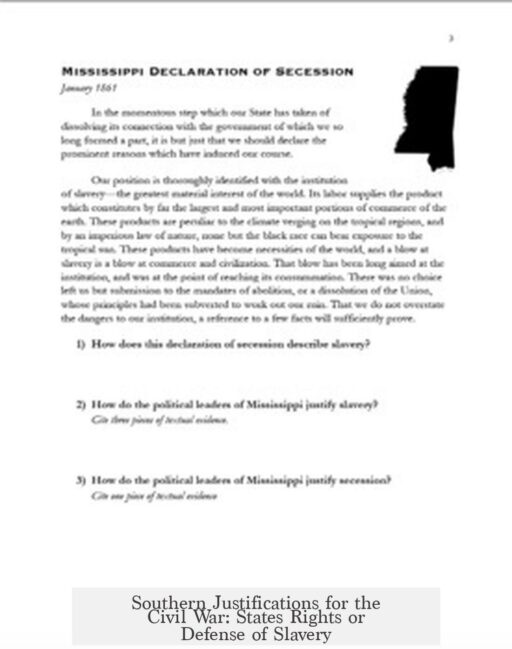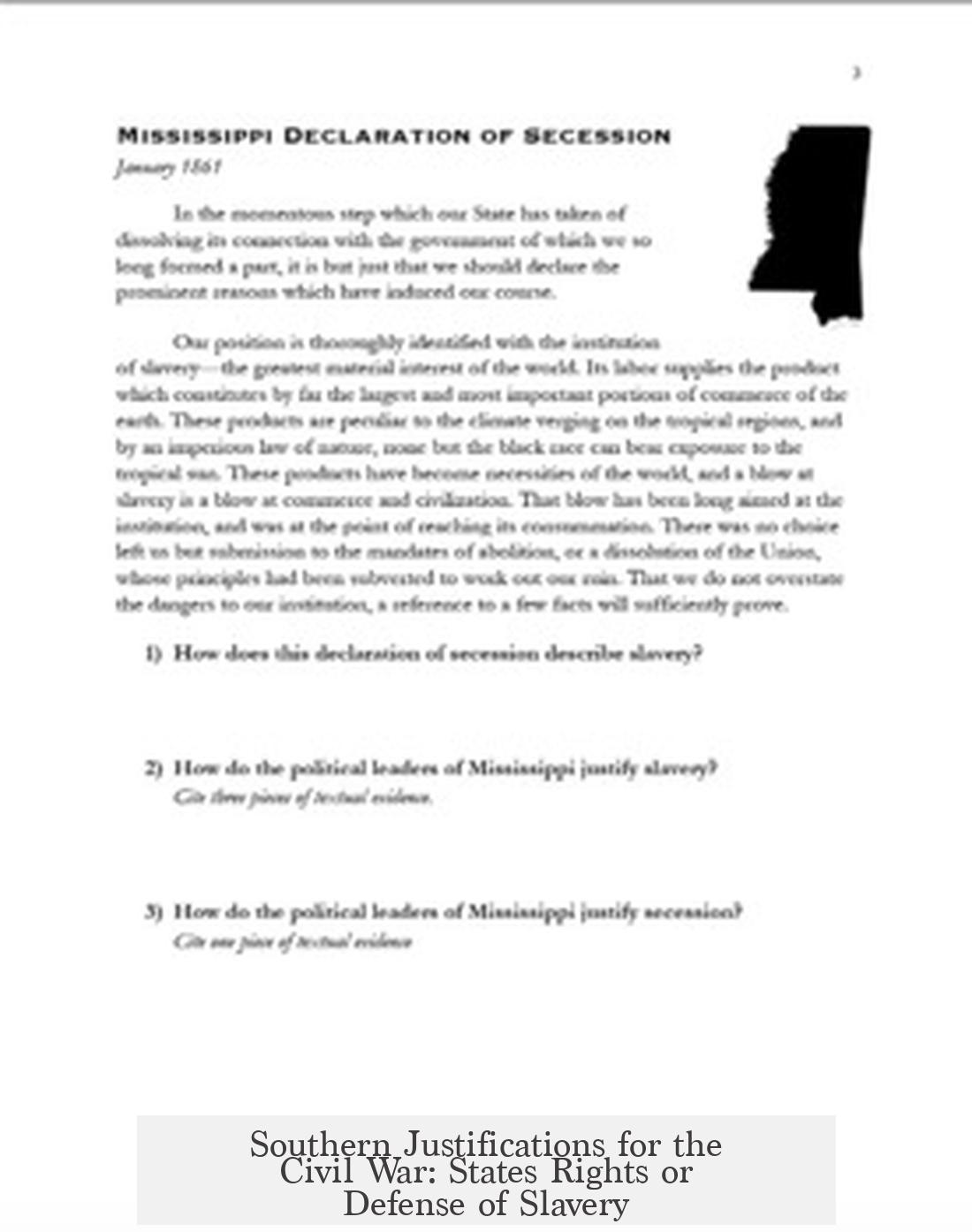Southern states claimed they fought the Civil War to defend “states’ rights,” but the primary “right” they sought to protect was the institution of slavery. The Confederate Constitution explicitly enshrined slavery, forbidding any laws that would impair the “right of property in negro slaves.” This shows the centrality of slavery in the Confederacy’s cause.
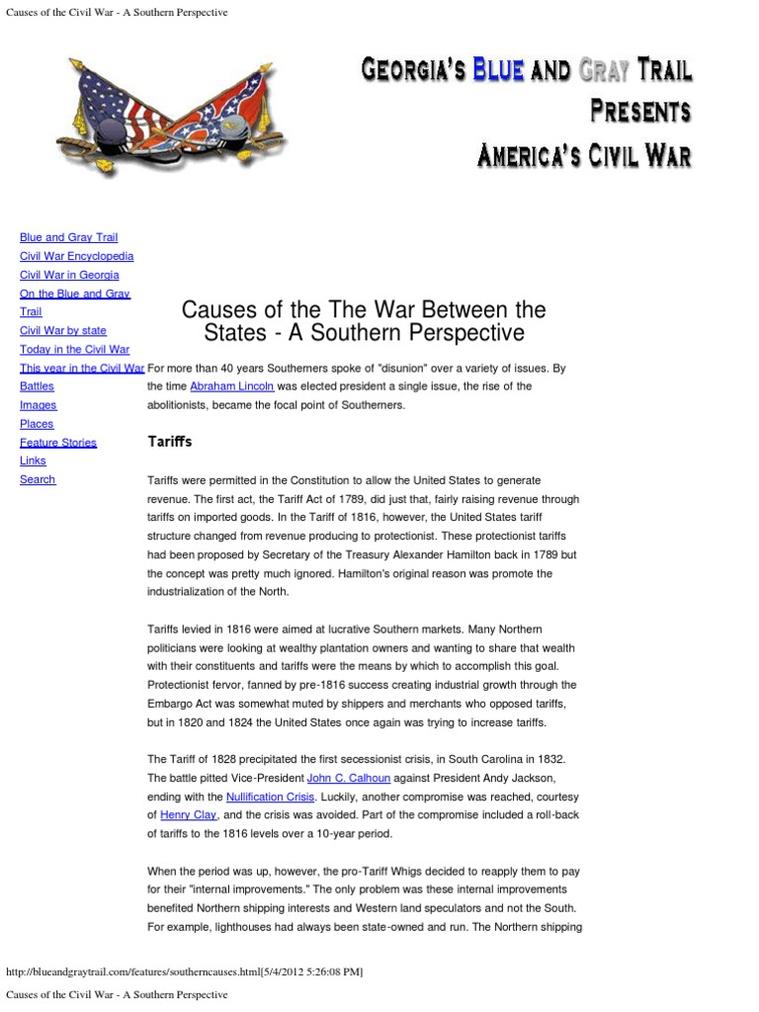
The Confederate Constitution contained several clauses that ensured slavery’s survival. For example, it allowed slaveholders to freely move enslaved people between Confederate states and territories. It also mandated the legality of slavery in new states admitted to the Confederacy.
Economic grievances also factored in. Southern states opposed several economic policies favored by the industrial North. These included protective tariffs that taxed imported goods. The South, reliant on cash-crop agriculture, saw such tariffs as harmful since they made imported goods more expensive without benefiting Southern economies. The Confederate Constitution prohibited protective tariffs and restricted federal funding of internal improvements, except in waterways vital to Southern commerce.
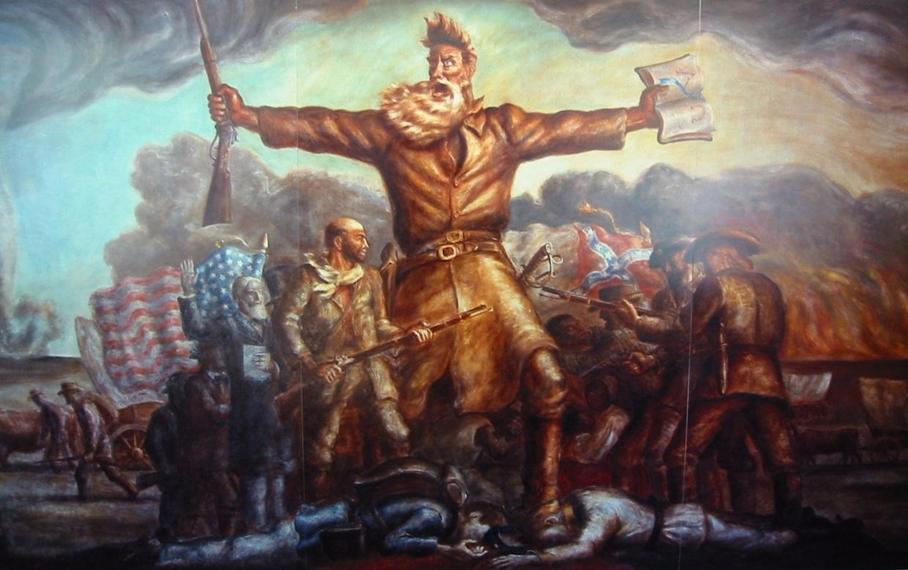
Besides slavery and economic issues, the Confederate Constitution introduced structural changes to government. These included a president serving a single six-year term without consecutive reelection, a line-item veto on spending bills, and limiting bills to one subject each to reduce legislative logrolling. Ratification of constitutional amendments required a two-thirds majority instead of three-quarters.
Modern arguments claiming “states’ rights” were the Confederate cause often attempt to obscure slavery’s central role. The precise protections of slavery in the Confederate document show it was the foundational issue. The “states’ rights” label is thus largely a post-war reinterpretation or euphemism used to downplay the Confederacy’s defense of slavery.
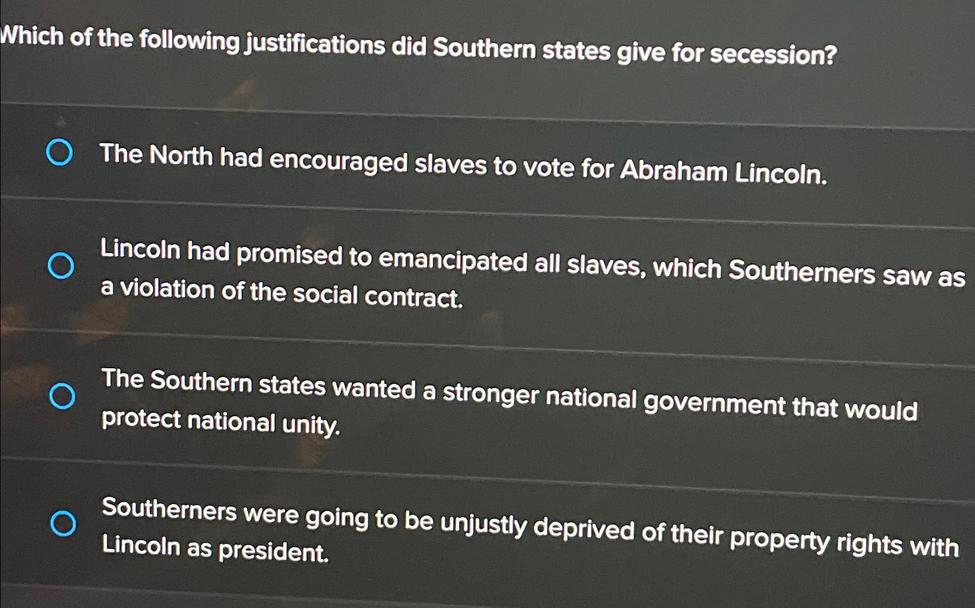
- The Confederate Constitution explicitly protected slavery as property rights.
- Economic disagreements focused on tariffs and funding of internal improvements favoring the industrial North.
- Structural government changes were introduced but were secondary to slavery and economic issues.
- Claims that the Civil War was primarily about “states’ rights” often obscure the central role of slavery.
What Were the “States Rights” Southerners Say They Fought the Civil War For, and Is It Just a Modern Argument to Avoid the Fact That They Were Fighting for Slavery?
In short: The main “states rights” Southern leaders claim to have fought for was the right to maintain and expand slavery. This wasn’t just a modern dodge to soften the harsh truth about the Confederacy; it’s written clearly in the Confederate Constitution and in the declarations Southern states issued when they seceded. But what about those other arguments the South throws into the ring—tariffs and government overreach? Let’s unpack the tangled mess wrapped in that phrase “states rights.”
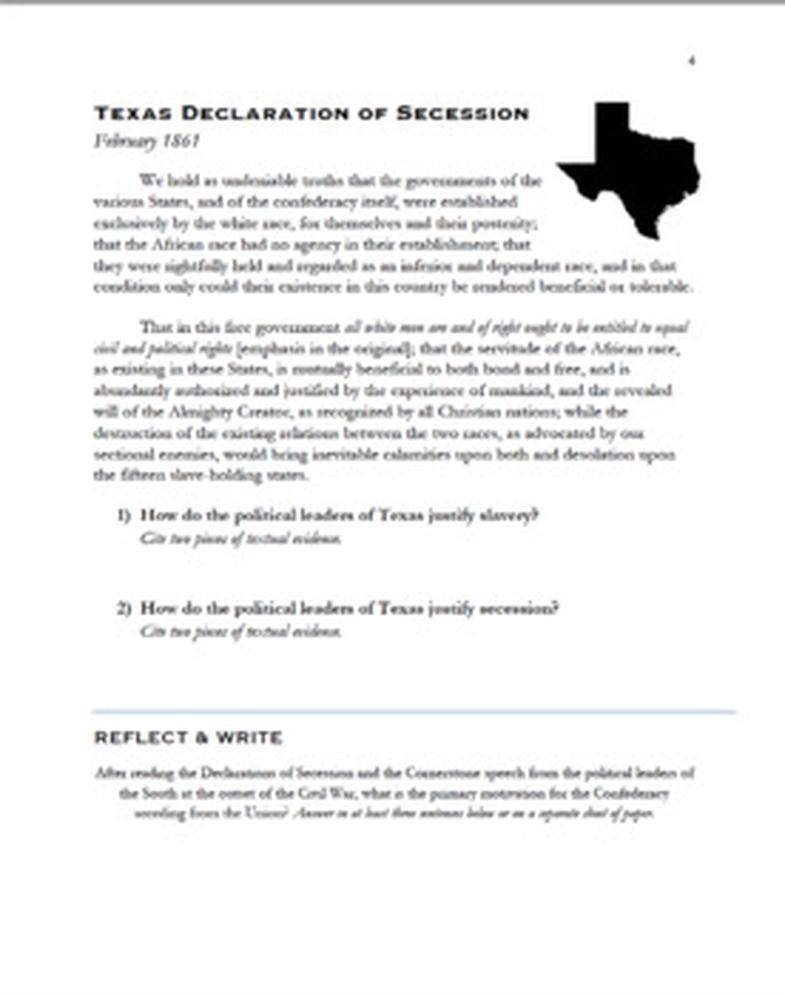
When you hear people say the Civil War was about “states rights,” it sounds neutral, even noble. Who can argue against states deciding their own fate? But that idea hides a very specific right at its core: the right to hold, move, and expand human property—that is, enslaved Black people.
The Confederate Constitution: Slavery on Full Display

The Confederate Constitution doesn’t leave much to the imagination. It explicitly protects slavery with a zeal that leaves no doubt about its priorities. Here are some striking examples:
- Congress is forbidden from passing any law that would deny the property rights of slave owners. This isn’t states deciding everything; it’s a national guarantee that slavery stays untouchable.
- Even the clause forbidding the slave trade has an exception, allowing importation of enslaved people from existing U.S. slave states into the Confederacy.
- The new Confederacy demands slavery be legal not just in existing states but in all territories and any future new states. Expansion was a must.
- Confederate citizens can transport their slaves freely across state and territorial lines, reinforcing the control slave owners had.
So, if you’re hearing “states rights,” the right they primarily want protected is slavery as a property right. It wasn’t a vague principle—they spelled it out in their founding document. To frame the war otherwise misses the point Southern leaders loudly proclaimed before and during the conflict.
The Economic and Political Grievances: More Than Slavery, but Not Less
Yes, the South also disliked federal economic policies. The Confederate Constitution rejects the Whig economic system—specifically, protective tariffs and internal improvements that favored Northern industry. Why?
- The tariffs made imported manufactured goods more expensive, hitting the Deep South’s cash-crop economy hard. Meanwhile, the more industrial Northeast thrived under these policies.
- The South felt taxed unfairly for infrastructure improvements it did not benefit from. So the Confederacy forbade national funding of “internal improvements” except for waterways—a critical transport route for Southern goods.
These grievances are part of the story but aren’t the big headline. They are secondary factors. Economic annoyance did not spark the war; slavery as a protected institution did.
Structural Changes: Confederate Innovations with a Purpose
The Confederacy also introduced structural changes in government designed to build a different political landscape:
- The President served a six-year term but couldn’t be immediately re-elected. This likely stemmed from a desire to avoid strong, prolonged executive power.
- Legislation was limited to a single subject to combat “logrolling”—trading favors that could produce weak or unfair laws.
- The President received a line-item veto over budget bills—a way to curb unwanted spending.
- The constitutional amendment process required fewer states to approve changes—2/3 instead of 3/4—making it easier to adjust.
These changes show the South was serious about shaping its new government with tighter controls and operational differences. However, none of these structural quirks overshadow the overriding commitment to maintaining slavery legally and economically.
Is the “States Rights” Argument a Modern Cover-Up?
Some people today push the states rights angle to downplay slavery’s role in triggering the Civil War. It’s easier to say, “They just wanted to govern themselves” than to admit, “They fought to keep people enslaved.”
But scrutinizing historical documents and leaders’ words, like the Confederate Constitution and secession declarations, settles this matter: they explicitly and overwhelmingly sought to defend slavery. This was not a secret agenda; they made it clear.
Supporting examples include the secession speeches from Southern governors and legislators. Not one focuses on vague “states rights” in isolation; all emphasize the defense of slavery as their core reason for leaving the Union. Economic and political issues appear, but always in relation to preserving slavery’s framework.
Why the Misunderstanding Persists
“States rights” offers a sanitized view of the Civil War’s complex causes. It appeals because it sounds less morally condemning. But facts matter, especially when teaching or reflecting on history.
The South failed in its attempt to uphold slavery, but the notion that states just wanted independence without slavery as a core issue doesn’t hold up. At best, it’s a half-truth spinning away from uncomfortable realities.
Conclusion: Facing Facts Helps Us Understand History Better
To truly understand the Civil War, embrace the full truth: Confederate “states rights” were primarily about the right to own slaves and protect the institution of slavery from federal interference. Economic and political grievances existed but were subordinate.
Thinking of the war in terms of states rights without slavery is like trying to enjoy a pie but ignoring the main ingredient. It’s incomplete.
History deserves honest voices that don’t dilute the struggle that shaped a nation. So next time someone leans on “states rights,” ask: Which rights? The right to hold people as property? Or something else? And why did so many leaders say slavery was the cause?
Getting these answers right matters. It honors those who fought to end oppression and helps prevent repeating the past’s heartbreaks.
